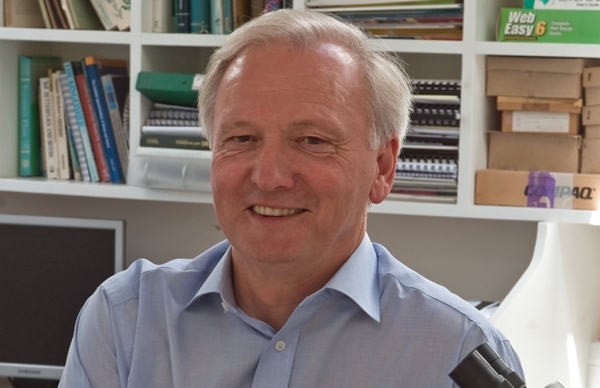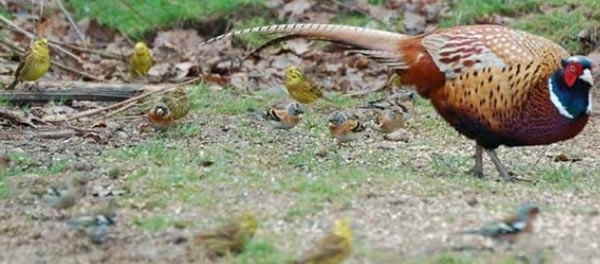
An unexpected request nearly three decades ago evolved into a special journey for Ian Coghill.
The Masters of Harriers and Beagles Association needed someone to represent it on GCTs Wetlands and Predation Research Steering Committee.
Captain Wallace, an established figure who ran virtually everything to do with hunting at that time, recommended Ian for the committee that was researching brown hare conservation.
Unhesitant (you didn’t argue with the Captain), Ian accepted the invitation and, since that first meeting, has never looked back.
Recalling those events in 1992, “it was brilliant”, he explained.
“Practical scientists, mingled with gamekeepers, landowners and farmers, blending practice, sense and science to answer questions that really mattered.
“I absolutely loved it and I still do.”
Those meetings culminated in a book, written by then director of policy Stephen Tapper, on how farmers and landowners can sustain a healthy hare population.
Fast-forward 18 years to 2010, Ian was elected national chairman of the trustees, replacing Mark Hudson at the top.
As well as a lifelong interest in the countryside and country sports, he has been a committed conservationist since almost before the term was invented.
Ian showed great passion for GWCT’s work, visited many projects, interacted with staff and gave amusing after-dinner speeches.
But July this year will mark an end of an era as Ian, GWCT’s longest-serving chairman after 8 years, is stepping down – a decision not taken lightly.
“I’ll miss it, it’s a wonderful organisation,” he continued.
“All organisations are based on their people, and the scientists, backroom staff, members and trustees of GWCT are second to none. I’ve been involved in several charities in my life and worked in partnerships with lots of other organisations but I’ve never seen people as committed to honest science and getting on with the job as GWCT.
“We are an extraordinary organisation – we try to publish everything, without fear or favour. We speak truth to power and our staff are extraordinarily good at what they do. I’m very grateful for what they’ve done.
“GWCT can look forward to years and years of invaluable service to the countryside of Great Britain.
“Without this organisation, Britain, and its countryside and wildlife, would be in a far poorer place
“We don’t turn over tens of millions of pounds like the behemoths of the conservation world. But, because we are small, we can say things that other people can’t. For instance, on predator control, we can be quite frank about the need to do it when others aren’t.
“Without GWCT, farming, shooting, fishing and a whole range of wildlife conservation would be much worse off than it is now.”
Aside from being involved in the research into brown hares, Ian has overseen many changes at the Trust, from changes in policy and communications to the growth of activity in Scotland and Wales.
It’s also the nature of the organisation, and its groundbreaking research, that gives Ian great pleasure.
But what will Ian miss the most is “knowing what’s going on - in an odd way,” he added.
“Whatever I’ve been involved in in my life, the greatest joy is to be in the thick of it, and some people, and I’m one of them, always want to know what’s the other side of the hill.
“As far as conservation is concerned, GWCT has enabled me to do that.
“You can see what’s coming and, in the conservation world, there is always somebody who has a glib and easy answer to every problem. In my experience it’s usually more complicated than you would have wished.
“But GWCT is one of those organisations which will dig into the complexity, find out the key elements that need to be put right and put it right.
“We do practical things, for practical people.”
Despite Ian’s love for the countryside and country sports, his profession was spent outside this world.
He had a successful 42-year career in local government, starting on the front line inspecting food and ending as Director of Community Safety and Environment for Birmingham City Council where he oversaw a reduction of crime by 27 per cent and simultaneously made Birmingham the largest recycler in the UK.
Replacing him as chairman will be Sir Jim Paice, it was unanimously decided by trustees at a meeting in November.
Sir Jim enjoyed a long political career as a Conservative MP and spent two years as Minister of State for DEFRA.
In addition, Sir James is a long-standing GWCT trustee and has chaired both the Allerton Project Committee and our Lowland Research Steering Committee.
Chief executive Teresa Dent CBE said: “Ian has been a magnificent chairman, and we have benefitted a great deal from his immense knowledge and experience, as well as his passion for the countryside, game and wildlife. He has also given me huge personal support and I am very grateful.
“While it will be very sad to see Ian go, we are delighted to welcome Sir James Paice as our new chairman. His political experience will be invaluable as our exit from the EU continues to loom so large on the horizon in terms of future policy.”
Sign up to our FREE weekly newsletter

Join over 30,000 subscribers and keep updated on our latest research, events, news and fundraising work.